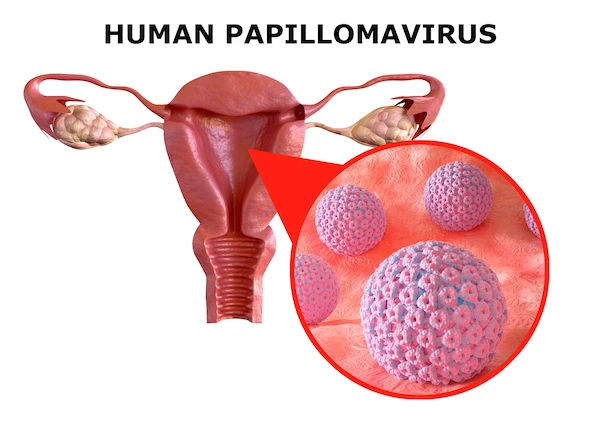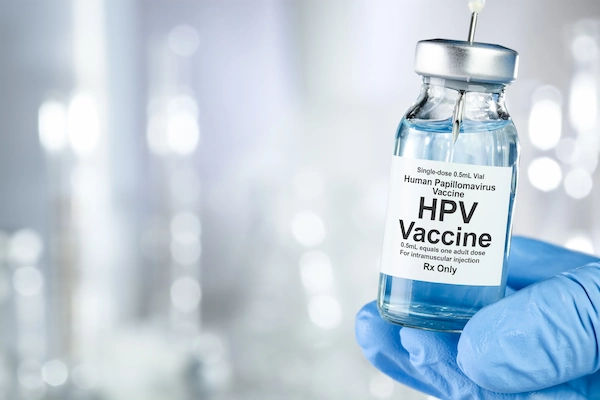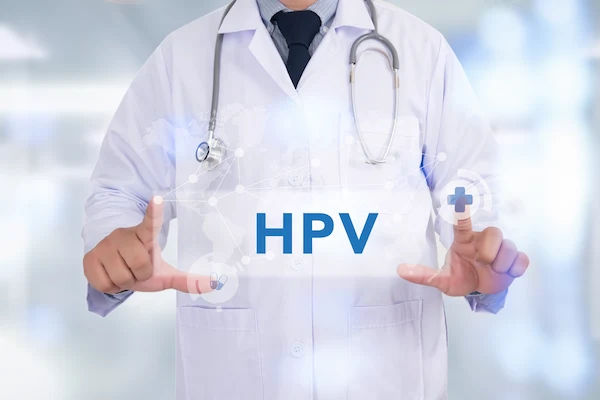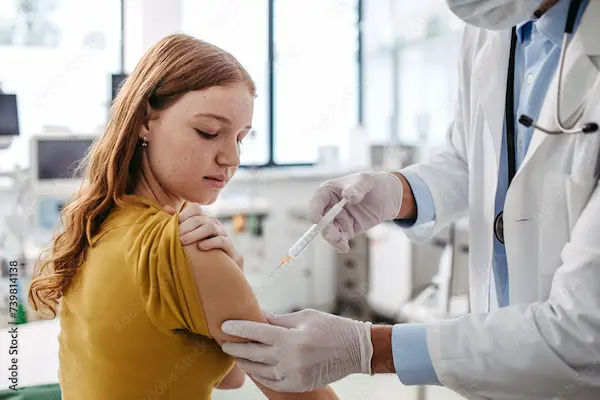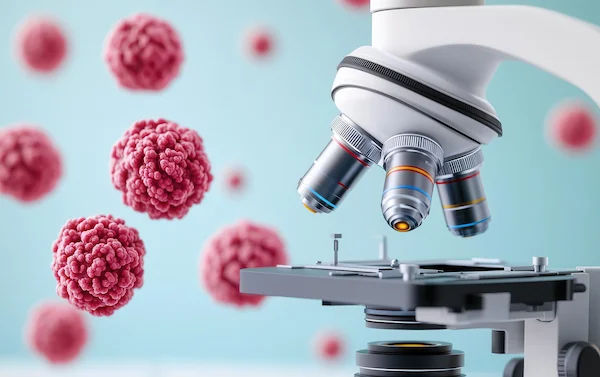Guide to Know All About Hpv Vaccines
Discover everything you need to know about the HPV vaccine—its benefits, recommended age, dosage schedule, effectiveness, and safety.

Written by Dr. Md Yusuf Shareef
Reviewed by Dr. Shaik Abdul Kalam MD (Physician)
Last updated on 13th Jan, 2026

Introduction
Human Papillomavirus (HPV) is the most common sexually transmitted infection, but its potential consequences are often misunderstood. While many infections clear on their own, persistent infection with certain high-risk strains can lead to several cancers later in life. The good news? We have a powerful tool to prevent this: the HPV vaccine. This guide cuts through the confusion to give you a clear, fact-based overview of everything you need to know about HPV vaccines. We'll cover who should get it, when, the different types available, and address common concerns about safety and effectiveness. Think of this not just as a vaccine, but as a proactive shield against multiple types of cancer for both men and women.
What is HPV and Why Should You Be Concerned?
HPV is a group of over 200 related viruses, with about 40 types spread through direct sexual contact. It's so common that nearly all sexually active men and women will get at least one type of HPV at some point in their lives. For most, their immune system will defeat the virus without any symptoms or health problems. However, when the immune system doesn't clear certain high-risk strains, it can lead to changes in cells that may develop into cancer over time. This is why understanding HPV and cancer prevention is critical for long-term health.
The Link Between HPV and Cancer
High-risk HPV strains are responsible for more than 90% of cervical and anal cancers, about 70% of vaginal and vulvar cancers, 60% of penile cancers, and 60-70% of cancers of the oropharynx (the back of the throat, including the base of the tongue and tonsils). Cervical cancer is particularly concerning; it is the second most common cancer among women in India and a leading cause of cancer-related death.
How HPV is Transmitted
HPV is primarily transmitted through intimate skin-to-skin contact, most commonly during vaginal, anal, or oral sex. It's important to note that penetration is not required for transmission. Condoms reduce the risk but do not fully protect against HPV, as the virus can infect areas not covered by a condom. This makes vaccination, which offers direct protection, a crucial public health strategy.
Consult a Specialist for the best advice
The HPV Vaccine: Your Shield Against Cancer
The HPV vaccine is a revolutionary medical advancement designed to prevent infections from the most dangerous strains of the virus. It works by stimulating the body's immune system to produce antibodies that target the specific HPV types included in the vaccine. If a vaccinated person is later exposed to one of these HPV types, these antibodies are ready to attack and neutralise the virus before it can cause an infection.
Types of HPV Vaccines: Gardasil 9 and Beyond
Currently, the most widely used vaccine globally is Gardasil 9 (9-valent HPV vaccine). As the name suggests, it protects against nine HPV types: two low-risk types that cause most genital warts (6 and 11) and seven high-risk types that cause cancer (16, 18, 31, 33, 45, 52, and 58). This coverage is incredibly broad, protecting against approximately 90% of cancer-causing HPV strains. Earlier vaccines like Cervarix (bivalent, protects against 16 and 18) and Gardasil (quadrivalent, protects against 6, 11, 16, 18) are still effective but offer less comprehensive coverage than Gardasil 9.
Who Should Get the HPV Vaccine?
Recommended Age for HPV Vaccination
The CDC and WHO recommend routine HPV vaccination for boys and girls starting at age 11 or 12, though it can be given as early as age 9. The ideal time for vaccination is before an individual becomes sexually active and has any exposure to HPV. This ensures the body develops immunity well before any potential encounter with the virus.
HPV Vaccine for Adults: Is It Too Late?
No, it's not necessarily too late. The vaccine is approved for everyone up to age 45. For adults aged 27 through 45, it's recommended to discuss with a doctor whether vaccination is right for them. While they may have already been exposed to some HPV types, the vaccine can still protect against the strains they haven't encountered. If you are sexually active with multiple partners or are in a new relationship, a doctor might advise that the HPV vaccine for adults is a beneficial preventive step.
Special Considerations for LGBTQ+ Individuals
LGBTQ+ individuals are equally at risk for HPV and its related cancers. Men who have sex with men are at significantly higher risk for anal cancer caused by HPV. Transgender individuals should also follow vaccination recommendations based on their age and anatomy. It is a critical part of preventive healthcare for everyone, regardless of sexual orientation or gender identity.
The HPV Vaccine Schedule: How Many Shots Do You Need?
The number of doses depends on the age at which the vaccination series is started.
Dosage Schedule for Children and Teens (9-14 years)
For individuals who start the series before their 15th birthday, the HPV vaccine schedule is two doses. The second dose should be given 6 to 12 months after the first dose. This two-dose regimen is highly effective for this age group due to their robust immune response.
Dosage Schedule for Older Teens and Adults (15-45 years)
For those who start the series on or after their 15th birthday and for people with weakened immune systems, three doses are needed. The schedule is: the first dose, followed by the second dose 1–2 months later, and the third dose 6 months after the first dose. It's crucial to complete the entire series for optimal protection.
Debunking Common Myths About the HPV Vaccine
Despite its proven safety record, misinformation persists.
Myth vs. Fact: Safety and Promiscuity Concerns
- Myth: The vaccine causes infertility.
Fact: There is no evidence linking the HPV vaccine to infertility. In fact, by preventing cervical cancer (which can require fertility-impacting treatments like hysterectomy), it protects fertility. - Myth: It encourages earlier or promiscuous sexual activity.
Fact: Numerous studies have shown that receiving the HPV vaccine does not lead to earlier or riskier sexual behavior. This is a preventive health measure, much like wearing a seatbelt doesn't encourage reckless driving. - Myth: The ingredients are dangerous.
Fact: The vaccine ingredients are safe and have been rigorously tested. Like other vaccines, it may contain aluminum salts to strengthen the immune response and a protein-based adjuvant, all of which are used in many common vaccines and have a long safety history.
What to Expect: HPV Vaccine Side Effects and Safety
The HPV vaccine has been monitored for over 15 years and has an excellent safety profile, with hundreds of millions of doses administered worldwide.
Common, Mild Side Effects
These are similar to those of other vaccines and are a sign the body is building protection. They usually go away on their own within a day or two. They include:
- Pain, redness, or swelling in the arm where the shot was given
- Dizziness or fainting (more common in adolescents; sitting for 15 minutes after the shot can help)
- Headache
- Feeling tired
- Nausea
- Muscle or joint pain
Addressing Rare and Serious Side Effects
Severe allergic reactions (anaphylaxis) are extremely rare, occurring in an estimated 1.8 per million doses. Vaccination providers are equipped to manage such immediate reactions. There is no proven link between the HPV vaccine and other chronic conditions like autoimmune disorders. The benefits of preventing cancer far outweigh the minimal risks of the vaccine. If you experience severe or unusual symptoms after any vaccination, it is crucial to consult a doctor online with Apollo24|7 for prompt evaluation and guidance.
The Proven Effectiveness of the HPV Vaccine
The data is overwhelmingly positive. Countries with high vaccination rates have seen dramatic results.
Real-World Data on Cancer Prevention
A 2021 study in England found that the HPV vaccination program dramatically reduced cervical cancer rates by almost 90% in women in their 20s who were offered the vaccine at age 12-13. Infections with HPV types 16 and 18 have dropped by 86% among female teens aged 14-19 and 71% among women in their early 20s in the U.S. Cases of genital warts have also plummeted in vaccinated populations.
The Power of Herd Immunity
High vaccination coverage creates herd immunity, indirectly protecting unvaccinated individuals by reducing the overall circulation of the virus in the community. This is a powerful reason for widespread vaccination, as it helps protect those who cannot be vaccinated for medical reasons.
How to Get the HPV Vaccine in India
Cost and Availability
The HPV vaccine (Gardasil 9) is available in India at most major hospitals, private clinics, and vaccination centers. It is a paid vaccine, with the cost of a single dose typically ranging from ₹3,000 to ₹5,000. The total cost for the full 2 or 3-dose course is a significant factor for many families, but it's an investment in long-term cancer prevention.
Talking to Your Doctor
The best first step is to have a conversation with a healthcare provider. They can provide the most current information, recommend the appropriate vaccine type, and administer it. They can also address any specific concerns you may have based on your or your child's health history. If you're unsure about your vaccination status or eligibility, booking a physical visit to a doctor with Apollo24|7 can provide clarity and help you make an informed decision.
Conclusion
The HPV vaccine represents one of the most significant advances in modern medicine for cancer prevention. It goes beyond just protecting against a virus; it directly prevents devastating cancers of the cervix, throat, anus, and other areas. By understanding the facts—debunking the myths, knowing the recommended schedule, and appreciating its proven effectiveness—you can make an empowered decision for your health and the health of your family. While the initial cost may seem like a consideration, it pales in comparison to the emotional and financial toll of a cancer diagnosis. Protecting yourself and your children is an investment in a healthier future. Take the next step: talk to a healthcare provider to see if the HPV vaccine is right for you or your loved ones.
Consult a Specialist for the best advice
Consult a Specialist for the best advice

Dr. Mainak Baksi
General Practitioner
13 Years • MBBS , MD (MPH)
Howrah
Mainak Baksi Clinic, Howrah
(50+ Patients)

Dr. Rajib Ghose
General Physician/ Internal Medicine Specialist
25 Years • MBBS
East Midnapore
VIVEKANANDA SEBA SADAN, East Midnapore

Dr. Ashita Kuruvilla
General Practitioner
7 Years • MBBS
Kolkata
KVC CLINIC, Kolkata
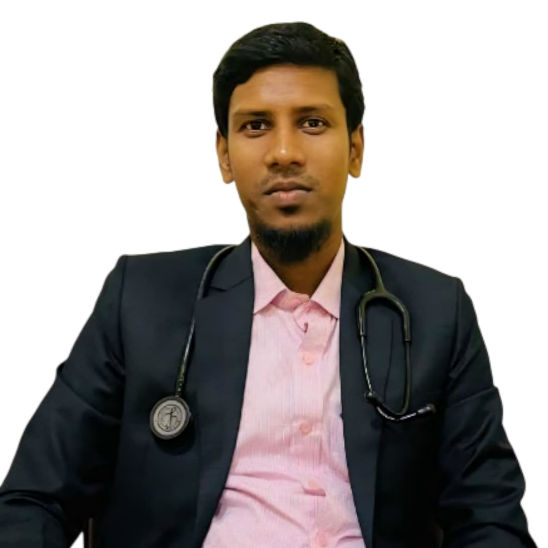
Dr. Arif Ahmed
General Physician/ Internal Medicine Specialist
9 Years • MBBS, MD (Genl. Med.)
Kolkata
MCR SUPER SPECIALITY POLY CLINIC & PATHOLOGY, Kolkata
Dr. Naziya Rahim Bhatia
General Surgeon
7 Years • MBBS ,MS
Bengaluru
Apollo Clinic, Sarjapur Road, Bengaluru
Consult a Specialist for the best advice

Dr. Mainak Baksi
General Practitioner
13 Years • MBBS , MD (MPH)
Howrah
Mainak Baksi Clinic, Howrah
(50+ Patients)

Dr. Rajib Ghose
General Physician/ Internal Medicine Specialist
25 Years • MBBS
East Midnapore
VIVEKANANDA SEBA SADAN, East Midnapore

Dr. Ashita Kuruvilla
General Practitioner
7 Years • MBBS
Kolkata
KVC CLINIC, Kolkata

Dr. Arif Ahmed
General Physician/ Internal Medicine Specialist
9 Years • MBBS, MD (Genl. Med.)
Kolkata
MCR SUPER SPECIALITY POLY CLINIC & PATHOLOGY, Kolkata
Dr. Naziya Rahim Bhatia
General Surgeon
7 Years • MBBS ,MS
Bengaluru
Apollo Clinic, Sarjapur Road, Bengaluru
More articles from HPV infection
Frequently Asked Questions
1. Can I get the HPV vaccine if I'm already sexually active?
Yes. Even if you have been sexually active, you may not have been exposed to all nine HPV types covered by the vaccine. It can still offer protection against the strains you haven't encountered. It's best to discuss your history with a doctor.
2. Do I need a Pap test/HPV test if I've had the vaccine?
Yes. The vaccine does not protect against all cancer-causing HPV types. Regular cervical cancer screening (Pap and/or HPV tests) remains an essential part of healthcare for women, as recommended by their doctor. The vaccine and screening together provide the best protection.
3. Why do boys need the HPV vaccine?
Boys need the vaccine to protect themselves from HPV-related cancers, including cancers of the throat, penis, and anus. It also helps prevent genital warts and, crucially, reduces the transmission of the virus to their partners, contributing to herd immunity.
4. How long does protection from the HPV vaccine last?
Current studies show that protection provided by the HPV vaccine is long-lasting. Data now shows over 15 years of effective protection with no evidence of waning. Ongoing research continues to monitor its duration, but it is believed to be very long-term, if not lifelong.
5. Are the side effects of the HPV vaccine severe?
For the vast majority, side effects are mild and temporary, like a sore arm or slight fever. Severe allergic reactions are extremely rare. The vaccine's safety is continuously monitored by global health organisations, and its benefits in preventing cancer far outweigh its minimal risks.
